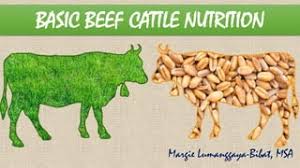Commercial Cattle Farming & Production aim is to produce high – quality beef for the market at a profitable level. In many cases, cattle farming forms part of a diversified (commercial) farming enterprise, which helps manage production and market risks.
Furthermore, cattle are often kept on marginal soils that are unsuited to planting crops. Also, they are used to compliment & add value to grain production by allowing animals to graze crop stubble after harvesting.
Cattle Animal Selection 
Good Quality genetics are essential to improve the productive capabilities of cows/bulls, as well as the quality of weaners. Commercial cows are selected according to either size, age, condition, stage of production & market price.
Cattle Animal selection should be determined by your particular farming environment, production and breeding system. The breed you ultimately select should also match your available feed resources and your specific on-farm conditions.
Since breeds are different in terms of their marketable traits, a crossbreeding programme could be viable for a cattle farmer. Before embarkiong on a crossbreeding programme, decide what your production goals are, and select breeds that will compliment each other.
Cattle Nutrition 
Cattle require protein, energy, water, fat, minerals and vitamins. The amounts vary according to the environment, animal’s age, time of the year, and production goals & stages.
As a rule, cattle consumes up to 3kg of feed per day foe each 100kg of body weight. Therefore, a weaned 300kg calf will eat 9kg high – quality lucerne daily to reach an average weight of 450kg. The condition of the pasture or veld should receive constant attention, with the goal being continous improvement through dedicated management. It is essential that the veld/pasture provides adequate energy and nutrients for your animals so that they remain productive.
Herd Health & Disease Prevention
Maintaining herd health is a key element for successful beef production. Some diseases as well as internal and external parasites are often prevalent in specific areas. Your vet should visit your farm at least twice a year. It is crucial that herds be tested regularly for certain controlled and notifale animal diseases. To protect the health of your herd, ensure you take necessary precautionary measures when bringing other cattle onto your farm.
About Me

I am a small business consultant with 28 years banking and 23 years business experience. This also include 15 years experience working with farmers. Read More
Contact
Phone
Address
Website you Must Visit
Small Businesses and Agriculture play a vital role in building our economy, communities, and delivering the creativity that will move our country forward. The starting point to all of this is to develop a proper "Business Plan” that is necessary to show all interested parties – employees, investors, partners, and yourself – that you are committed to building your business. Creating your plan forces you to think it through and select strategies that will propel your growth.
Visit our website – www.premiumbusinessplans.co.za now for more details and professional help.

